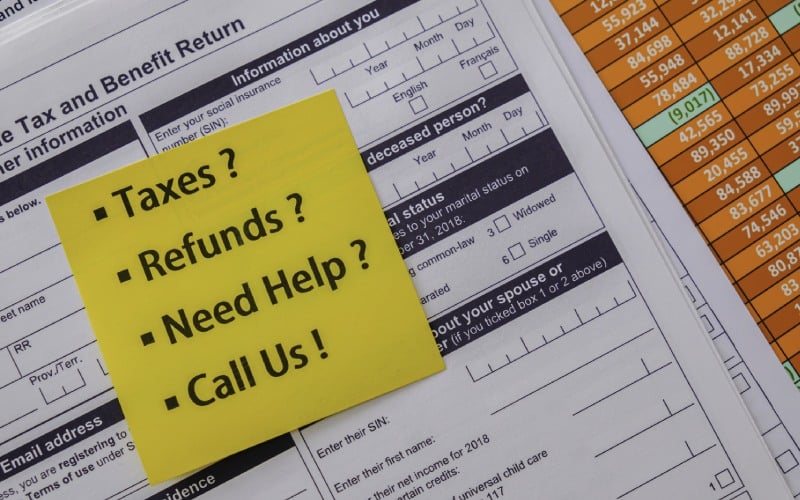Effective April 9, 2020 the application for Canada Emergency Business Account (CEBA) became available and practices have the ability to apply for Government relief online.
Effective June 26, 2020 additional measures have rolled out to allow for newer practices and even associates who previously didn’t qualify to now access this program.
Here are the details to see if you qualify for it:
Table of Contents
ToggleWhat is the CEBA Program?
The Canada Emergency Business Account is a government guaranteed loan of up to $40,000 that is interest-free until December 31, 2022.
The loan is available to help dentists with operating costs during COVID-19.
25% of the loan amount (up to $10,000) is eligible for forgiveness as long as you pay back $30,000 on or before December 31, 2022.
If you cannot pay back the loan by December 31, 2022, it can be converted into a 3-year term loan at an interest rate of 5%.
Do I Qualify For CEBA?
To qualify, you need to meet the following requirements:
- Be a Canadian operating business in operation as of March 1, 2020.
- Have a business number for tax purposes
- Between $20,000 to $1.5 million in total payroll in 2019 calendar year
What about newer practices who don’t meet this payroll criteria?
What about practices that don’t have payroll because they get invoiced by associates?
What about associates operating under corporations or sole proprietors?
NEW! As of June 26 2020, if you do not meet this payroll criteria you can still qualify if you:
- Have Canada Revenue Agency business number
- Filed a 2018 or 2019 tax return
- Valid business expenses between $40,000 and $1,500,000 CAD in 2020
- Have a business bank account setup
What Are Valid Expenses?
Expenses will be subject to verification and audit by the Government of Canada so have that ready when applying.
“Eligible Non-Deferrable Expenses” means the following expenses (and only the following expenses) incurred or to be incurred in 2020 provided that they are not deferrable after 2020:
- Wages and other employment expenses to independent (arm’s length) third parties;
- Rent or lease payments for real estate used for business purposes;
- Rent or lease payments for capital equipment used for business purposes;
- Payments incurred for insurance related costs;
- Payments incurred for property taxes;
- Payments incurred for business purposes for telephone and utilities in the form of gas, oil, electricity, water and internet;
- Payments for regularly scheduled debt service;
- Payments incurred under agreements with independent contractors and fees required in order to maintain licenses, authorizations or permissions necessary to conduct business by the Borrower
The Government may or may not add additional categories.
The following expenses are not eligible and you cannot use the funds received to pay such expenses:
- Prepayment/refinancing of existing indebtedness
- Payments of dividends, distributions and increases in management compensation
Where To Apply For The CEBA Loan
Wherever you have your business bank account, that is where you apply.
The application for this CEBA loan is ONLY done online, it cannot be done at bank branches.
For example, if you bank with BMO, then you will apply for this CEBA loan through the BMO website.
The following conditions apply:
- Have a business chequing/operating account opened before March 1st, 2020
- Not being delinquent on existing borrowing facilities for more than 90 days in March 1st, 2020
- Not previously used or applied to the Program at any other financial institution
- NEW: The Borrower acknowledges its intention to continue to operate its business or to resume operations
- NEW: The Borrower agrees to participate in post-funding surveys conducted by the Government of Canada or any of its agents
Click here for BMO CEBA Application
Click here for Scotiabank CEBA Application
Click here for RBC CEBA Application
Are There Restrictions On How I Can Use This Money?
Yes, the CEBA Loan is meant to help cover their operating costs during a period where their revenues have been temporarily reduced.
The requirements of the program, as set out by the Government of Canada, is that funds from this loan will only be used to pay for operating costs that cannot be deferred, such as payroll, rent, utilities, regularly scheduled debt
service, insurance, subcontractors, and property tax.
It may not be used to fund any payments or expenses such as prepayment/refinancing of existing indebtedness, payments of dividends, distributions and increases in management compensation.
Additionally, funds from this loan cannot be transferred from an operating account into a wealth/investment account.
What Information Do I Need To Apply?
You will need to have the following information available when they are ready to start the application:
- 2019 T4 summary document to verify payroll eligibility
- Your Business Account number and transit number
For dentists with $20,000 CAD or less in total payroll paid in the 2019 calendar year will need to have the following information available when they are ready to start the application:
- Have a Canada Revenue Agency business number
- Have filed a 2018 or 2019 tax return
- Have documents with all eligible non-deferrable expenses between $40,000 and $1,500,000 CAD in 2020
Clients will need to keep these documents on file for audit purposes.
How Is the CEBA Loan Implemented?
The CEBA loan is issued in the form of a line of credit.
Monthly statements will be issued providing CEBA program loan account number and repayment information.
There is no minimum payment required on or before Dec 31, 2022.
The program payment timelines are as follows:
- The CEBA loan is interest free until Dec. 31, 2020
- Any outstanding balance will be converted to a term loan on Jan. 1, 2021, remains interest free until Dec. 31, 2022
- If repaid by Dec. 31, 2022, 25% of balance will be forgiven
- If outstanding on Jan. 1, 2023, 5% interest starts
- The remaining balance is to be paid in full no later than Dec. 31, 2025
You can repay the loan at any time, in monthly installments or as a lump sum, it’s up to you.
I Have Multiple Practices, Can I Apply For Each One?
Yes for each practice that meets the CEBA qualification critieria.
I Don’t Have Payroll I Pay Myself Dividends, Can I Apply?
Assuming you don’t meet the payroll conditions for 2019, you can still qualify even if you pay yourself dividends if you:
- Have a Canada Revenue Agency business number
- Have filed a 2018 or 2019 tax return
- Have documents with all eligible non-deferrable expenses between $40,000 and $1,500,000 CAD.
I Don’t Pay Myself Anything, Can I Still Apply?
Assuming you don’t meet the payroll conditions for 2019, you can still qualify even if you don’t pay yourself anything if you:
- Have a Canada Revenue Agency business number
- Have filed a 2018 or 2019 tax return
- Have documents with all eligible non-deferrable expenses between $40,000 and $1,500,000 CAD in 2020
Does My Own Wages And/Or That of My Wife Count?
No, wages that count as non-deferrable expenses only count to independent (arm’s length) third parties.
So you can’t include your wages or that of any family members, including your wife and children, when calculating the minimum $40,000 of non-deferrable expenses.
My Practice Relies On Associates Who Invoice Me, Can I Still Apply?
If your associates invoice you, those expenses qualify as eligible non-deferrable expenses, so you qualify as long as you meet the following conditions:
- Have a Canada Revenue Agency business number
- Have filed a 2018 or 2019 tax return
- Have documents with all eligible non-deferrable expenses between $40,000 and $1,500,000 CAD.
I’m A New Practice, Can I Apply?
If you opened prior to March 1, 2020 and you don’t meet the payroll condition for 2019, then you qualify if:
- Have a Canada Revenue Agency business number
- Have filed a 2019 tax return (even if it is a nil return)
- Have documents with all eligible non-deferrable expenses between $40,000 and $1,500,000 CAD in 2020
I’m an Associate Dentist Can I Apply?
The same qualification criteria apply for associate dentists.
You can still qualify as long as you meet the following conditions:
- Have a Canada Revenue Agency business number
- Have filed a 2018 or 2019 tax return
- Have documents with all eligible non-deferrable expenses between $40,000 and $1,500,000 CAD.
- You must have a business bank account
It does not matter if you are operating as a sole proprietor or corporation, the key distinction is that you must have a business bank account and not using your personal bank account.
If you are using your personal bank account, unfortunately you do not qualify
How Many Invoices Do I Need to Upload?
After you apply for the CEBA loan, your bank will direct you to upload your supporting documentation of non-deferrable expenses to the Government portal.
How many invoices do you need to upload?
Answer: as many as you need to show you have $40,000 in non-deferrable expenses for 2020.
Problem is, for each expense, the Government site only allows you to upload one file per expense.
So what to do?
For example, let’s say you have 10 invoices from a supplier this year.
You can’t upload all 10 invoices separately, so merge them all into one PDF using a site like Small PDF and upload that to the Government site.
Conclusion
The CEBA loan can help dentists manage the impact that COVID19 has had on revenues and expenses.
This loan up to $40,000 will help provide much needed liquidity for many, with up to 25% ($10,000) forgiven, so every dentist that qualifies should apply.
With the qualifications expanded in June, more dentists are now eligible to apply for this CEBA loan.
If I missed any of your questions, comment below and we’ll get it added to this Q&A.
Do you want to start saving
thousands in tax every year?
- Reviewsand Raises - February 20, 2022
- How To Start Opening A Dental Practice In Canada - February 16, 2022
- How Can Dental Offices Increase Profit? - February 10, 2022





